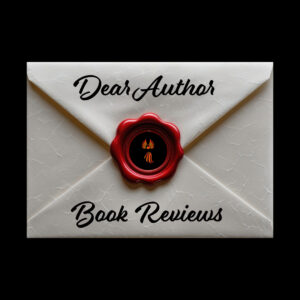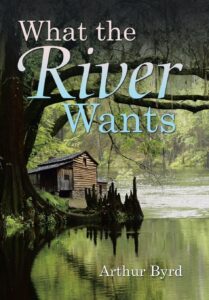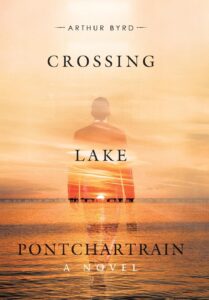

Dear Author Arthur Byrd,
I recently enjoyed reading your debut novel, What the River Wants, which drew me into the rich landscape of rural Mississippi, a place I know well and hold dear. I was pulled into the touching tale of Lee, a wise young teenager with a mature presence that surpasses his years. In the face of his family’s rich but troubled history, he weaves a path forward with courage and resilience, uncovering emotional depths and insights that shape his identity and understanding of the world.
The narrative centers around the dynamic relationship that unfolds between Lee and his solitary grandfather, Tom. This bond is the emotional foundation of the story, with unspoken words and silences hanging in the air like fragile Spanish moss as Tom cautiously takes steps toward genuine communication.
The novel’s pacing was deliberate, teasing out secrets one by one, compelling me to keep reading. Like life, this slow unraveling was full of surprises—unforeseen turns, painful moments, and moments of profound understanding. The unfolding story and its hidden secrets drew me into the characters’ lives, making their emotions feel like mine.
Your book expertly captures the spirit of Southern fiction, weaving in the vibrant tradition of oral storytelling, where characters reveal their past, family relationships, and intergenerational connections. The setting, with its vivid descriptions of the old cabin, the worn path to the riverbank, and the creek tumbling over logs, is a significant character in the story. A favorite quote of mine is, “Such a peaceful mumbling often made unusual sounds—almost like words, Lee thought, voices from the river.” The description struck a chord within me, transporting me back to my youth spent beside a flowing river, where the sound of water gliding over logs and stones accompanied my every adventure as it and I shared secrets. Your ability to evoke a sense of place significantly shapes the story’s mood and themes.
What the River Wants is a profound reflection of the intricate web of family relationships, revealing the emotional depths and tensions that often lie beneath the surface. This powerful exploration not only captivates but also invites the reader on an unforgettable journey of self-discovery, shedding light on the complexities and dynamics that shape our connections with one another.
Thank you for creating something so beautiful and thought-provoking.
With gratitude,
Penelope Samson-Dillard for Dear Author Book Reviews/Speak Up Talk Radio

Dear Author Arthur Byrd,
From the start, I sensed that Crossing Lake Pontchartrain would intertwine moments of humor and sarcasm with sorrow. The first chapter illustrates this balance, rich with what I might call wry poignancy that stirred memories of a past relationship in which I often felt marginalized by those who believed themselves to be my social betters. In this toxic social landscape, we see your character, Larry, bravely enduring ridicule in a desperate effort to support his wife, Janine. She, too, grapples with her own demons, adding layers of complexity to their struggles and highlighting the emotional turmoil they both face.
The way he grapples with his marriage’s dissolution and his quest for artistic rediscovery mirrors the silent battles many of us face. As I journeyed alongside him, I felt an unexpected yet comforting kinship—your writing captures the trials of life’s unpredictable paths.
Many people share Larry’s struggle with unfulfilled dreams. His artistic journey of self-discovery reminds us that renewal is always possible, even in mundane life. Larry’s transformation took a turn when he unexpectedly met an Argentine painter whose vibrant creativity rekindled his own. The vibrant backdrop of post-Katrina New Orleans adds an unmistakable flair that no other place could replicate. The resilience and unwavering spirit of the city reflect the journeys of those woven into the narrative.
Multiple relationships evolve as the novel progresses. The strong connection and creative collaboration between him and Emma, the yoga instructor, emphasize the importance of surrounding ourselves with those who inspire and encourage our progress.
The most impactful aspect was the emphasis on self-love and human connection. I appreciated how you illustrated that true fulfillment comes not just from external relationships but also from within.
This book is not for those in search of action and adventure. Its focus on dialogue and narrative may feel like a slow burn to some readers. Instead, Crossing Lake Pontchartrain serves as a reminder of the power of art, the depth of human connection, and the beauty of rediscovering one’s purpose. Thank you for writing a novel that inspired reflection.
With gratitude,
Penelope Samson-Dillard for Dear Author Book Reviews/Speak Up Talk Radio